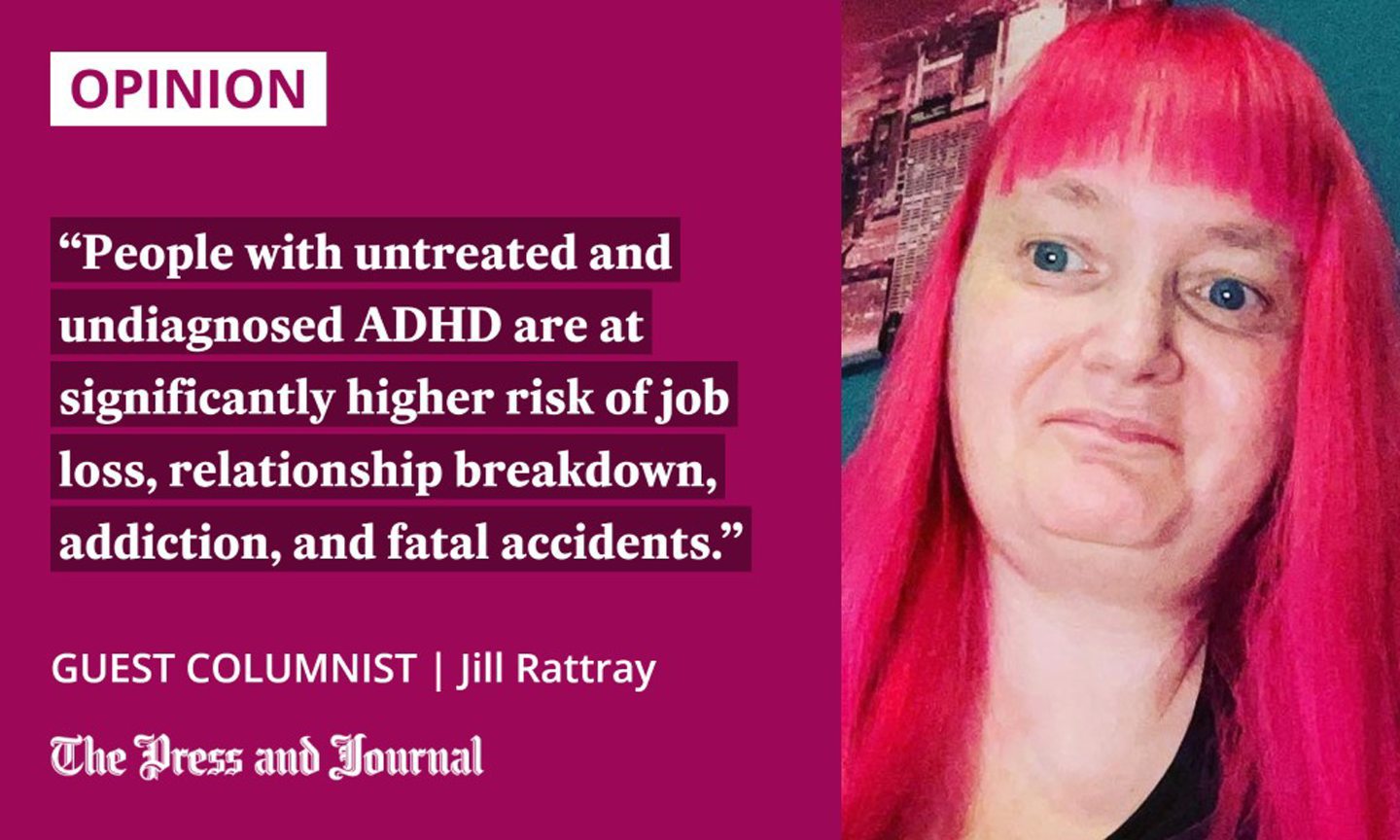The idea that ADHD is a ‘fad’ or a result of social media usage is incorrect and dangerous, writes Jill Rattray, who was diagnosed with the condition as an adult.
Recently, several stories have appeared from various media outlets, scaremongering about increased diagnoses of ADHD. It has been dismissed as a celebrity fad, an epidemic and the latest must-have mental health condition.
Let’s clear up the first bit of misinformation: ADHD isn’t a mental health condition, it’s a developmental disability.
Most of the complaints are fairly similar – critics say this isn’t ADHD, it’s just people spending too much time on their phones and using social media. What they need to do, we’re told, is put down their devices and try harder to pay attention.

So, clearly, these are people misunderstanding everything about ADHD. It’s a bit worrying that a couple of them were doctors.
We’re talking about adult ADHD here; mostly people in their thirties, forties and fifties. One of the key diagnostic criteria for ADHD is that symptoms exist before the age of 12. Most adults currently seeking a diagnosis turned 12 before smartphones or social media were invented.
Diagnosis is rising, but ADHD is not overdiagnosed
So, why is there an increase in ADHD diagnoses? Today, there’s more information about what ADHD is. We’re more aware of inattentive type ADHD, and of how the condition can display differently when factors like race, gender and other disabilities are accounted for.
Far from over-diagnosing the condition, we’re only reaching the tip of the iceberg.
Research suggests that around 5% of people have ADHD. In Scotland, that means around 275,000 people. Yet, NHS Scotland’s own figures show only 16,000 Scots are prescribed ADHD medication. Over 90% of people in Scotland who have the condition are unaware.
Thanks to a freedom of information request, there are figures for the number of adults diagnosed by NHS Lothian. Between 2016 and 2021, it was only 140 people. In 2017, I was one of just 11 women.
During 2019, NHS Grampian was criticised by the Scottish Public Services Ombudsman for its policy of refusing to even refer adults for a diagnostic assessment.
ADHD isn’t a social media trend
A diagnosis can take years to get. My own was obtained 18 months after I first went to my GP – nowadays, that’s a short waiting time. The only alternative is paying for a private assessment.
If you don’t have ADHD, this may seem trivial, but it is damaging and even costing lives.
People with untreated and undiagnosed ADHD are at significantly higher risk of job loss, relationship breakdown, addiction, and fatal accidents. While 5% of the general population has ADHD, in prisons it’s 25%.
Problems don’t end with diagnosis; post-diagnostic support is practically non-existent.
Medication is heavily stigmatised and subject to misinformation. For many people, myself included, it’s an incredibly effective tool. But it doesn’t work for everyone, and it can’t work alone. Yet, often it has to, because there’s nothing else.
ADHD doesn’t just affect attention, and – contrary to the name – we don’t have a deficit of attention, we struggle to control it. So, sometimes, we do find it difficult to focus on a task, but, at other times, we can hyperfocus, even to the extent that we forget to eat or sleep. It also impacts on our impulse control, emotional regulation and how we sleep.
ADHD affects the brain’s executive function, so, planning, organisation, task initiation, flexible thinking – all the things many neurotypical people take for granted. Most ADHDers will be dismissed as lazy before they will ever be offered help.
A diagnosis can change someone’s life
A diagnosis can help people understand their own brain and reach out to others with ADHD. There are great communities online, offering peer support and advice. The likes of YouTube, Instagram and TikTok have many users sharing their experiences, as well as strategies that can help people with ADHD get things done.
One of the recent newspaper articles I read claimed diagnosis was a bad idea because people would then use ADHD as an excuse for not doing something. That couldn’t be further from the truth.
After someone gets a diagnosis, they’re more likely to be able to get things done, because they understand themselves better and can use different techniques to help.
People with ADHD need diagnoses and support from government, and they need scaremongering and ridicule in the press to stop.
Jill Rattray writes about issues that affect neurodivergent and disabled people in the UK, particularly Scotland

Conversation